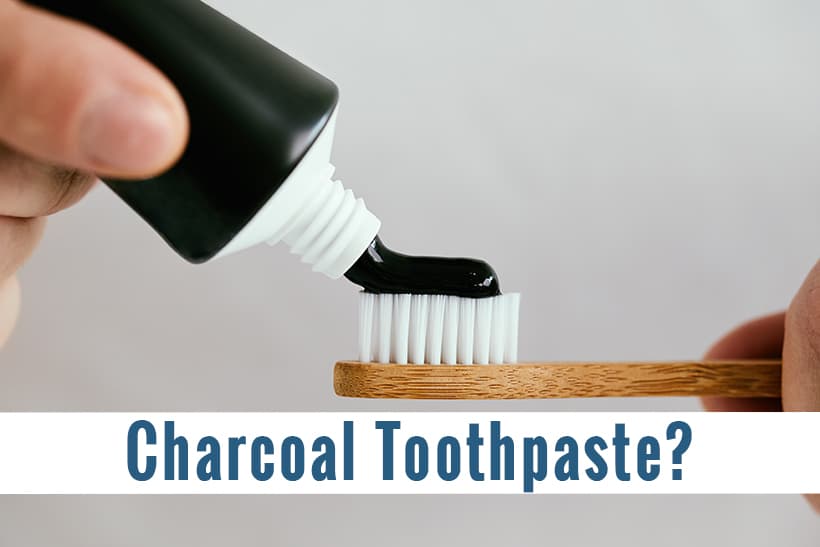
Did you know that the number one patient concern in the dental office is that they would like whiter teeth? We all want a smile that we can feel good about and for many of us it comes down to feeling confident about the shade of our teeth.
There is no one product that fits all when it comes to whitening. Maybe you’ve found yourself feeling overwhelmed while walking through the dental section at your local drug store! Know that you’re not the only one! We really see a full spectrum of products in the toothpaste aisle. Not only do you have your choice of flavors from mint to bubblegum, but you now can go as far as choosing between white toothpaste or black charcoal toothpaste for a whiter smile.
The History Of Charcoal
Charcoal whitening toothpaste may seem like a fresh new fad but a little look back in history and we notice that the ancient Romans actually brushed with it back in the day! In years past, charcoal was recommended for treating black gums and bad breath. The ancient Romans made charcoal mouthwashes and charcoal tooth powders out of burnt goat hooves. Today, activated charcoal is added to several dental products, many of which make claim of its whitening power.
What Is Activated Charcoal?
Activated charcoal is created through a process of heating regular charcoal in the presence of a gas. Through this process, the charcoal becomes more porous. Activated charcoal is often created for medical purposes because it can effectively absorb and trap toxic chemicals. It is ideal as a treatment standard for accidental poisonings, but today many also wonder if it is ideal for absorbing stain and bacteria in the oral cavity.
Is Activated Charcoal Toothpaste The Best Way To Go?
It’s hard for us to say exactly if activated charcoal is beneficial and safe for cleaning and whitening our teeth. We really don’t have sufficient data to support activated charcoal toothpaste as an effective way to whiten and these products haven’t yet been backed by the American Dental Association or the FDA. We do know that charcoal is effective in removing toxins, but it’s equally important for us to look at the concerns.
We know that charcoal is abrasive. Using a moderately abrasive material on your teeth for any lengthy periods of time can really be detrimental on your tooth’s enamel. While, enamel is a very hard substance, it can be worn down over time and once it wears down it does not regenerate. Also, charcoal is what makes the toothpaste black and it is possible for this to stain composite margins or rough areas in enamel or dentin. So, brushing daily with charcoal can be of concern for these reasons.
Other Options To Whitening Your Teeth
When it comes to having whiter teeth, it can be beneficial to consider your options. There are many safe whitening products on the market that have been tested and approved by the ADA and FDA. Your dental office also has many safe whitening options and we are happy to recommend what would be most beneficial to you. To learn more about these safe whitening options, please click here.
It’s also important to remember that when it comes to keeping your teeth white, routine dental cleanings should be a top priority. Routine dental cleanings allow your hygienist to examine your teeth and also suggest products that would be beneficial and safe for your unique situation. Plus, every 6 months they can remove the stains that are building up on your teeth.
As with most things in life, there are pros and cons. It is important to understand the products that you are using for whitening as it can have long term effects on your teeth and oral health. While one person may find charcoal toothpaste works well for them, another may find the opposite to be true. We strongly suggest talking with your dentist about the options that are best for your unique situation. If you have additional questions or if you would like to schedule an appointment, please give us a call or schedule an appointment online.



Leave a Reply